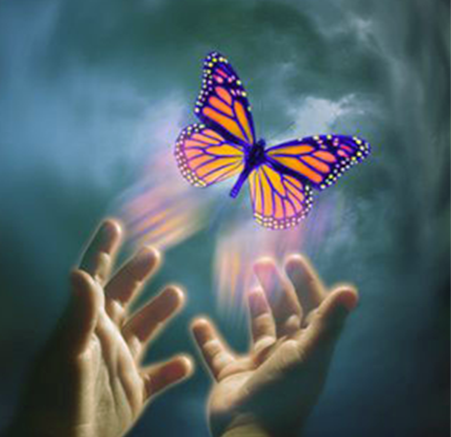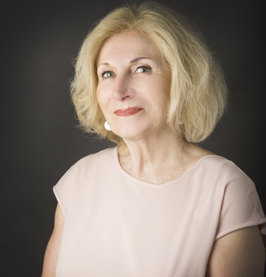
"In the dark of the cocoon, the butterfly finds its wings."
Anonymous
CHRISTI TAYLOR-JONES, M.A, MFT,
CERTIFIED JUNGIAN ANALYST
MFC35960
4419 VAN NUYS BLVD
SHERMAN OAKS, CA 91403
818 759-1898
“When a situation is not made conscious it happens outside, as fate.”
Carl Jung
ANXIOUS?
DEPRESSED?
UNFULFILLED/DIRECTIONLESS?
EXPERIENCING PROBLEMS WITH RELATIONSHIPS?
WONDERING ABOUT THE PURPOSE OF LIFE?
All symptoms are purposeful. But until their meaning is made conscious, we may endure years of meaningless suffering. As a Licensed Marriage and Family Therapist and Certified Jungian analyst, I offer a unique approach to everyday problems, be it anxiety, depression, relationship difficulties, substance abuse, or a general sense of purposelessness.
In the context of a trusting relationship, I work with clients to discover the underlying meaning in the problem rather than just eliminate symptoms. I am interested in helping you make deeper, long-term changes that will enable you to become more whole, more fully human and authentic. This involves an exploration of both conscious and unconscious processes. Dream interpretation, active imagination and sand tray are often helpful in this regard, as well as looking at the stories and myths you've lived in an attempt to find meaning in your life.
In Jungian psychology, the attempt to integrate conscious and unconscious material and become the person you were truly meant to be is called “Individuation.” The result of this approach is more than mere symptom relief; it involves a conscious understanding of who you are and your unlived potential.
WHAT IS JUNGIAN PSYCHOTHERAPY?
"Individuation is the process by which man becomes the definite, unique being that he in fact is."
"What is not borne out consciously is destined to be lived out as fate." C.G. Jung
Jungian psychotherapy is based on the groundbreaking work of Swiss Psychiatrist Carl Jung who believed that the cause and cure for mental illness resides in the the unconscious and that by exploring those regions of the psyche and bringing them into consciousness we can find meaning in the symptoms from which we suffer. Rather than a “quick fix” approach aimed at behavioral change, Jungian analysis seeks wholeness.
Through an exploration of the unconscious, that energy which is bound up in the symptom is released, and we are able to access our creativity, disentangle ourselves from binding and destructive patterns of behavior, develop more intimate relationships, and find renewed meaning in life.
APPROACH
One way to access the unconscious is through dreams, often called the portal to the soul. Sand play, art, active imagination, and other creative activities can also be helpful. But we start by building trust. The thera-

peutic relationship is core to any process of healing and transformation. An attitude of compassion, curiosity, honesty and lack of judgment is essential to a good working relationship.
As a result of a successful analysis, one is able to live in closer harmony with the Self, the higher center of the psyche. He/she is less prone to destructive feelings and behaviors, and is more receptive to the symbolic meaning of dreams, synchronicities and to the unconscious itself. Negative thoughts and emotions are replaced with curiosity, compassion and an appreciation for one's humanity and the humanity of others.
CORE CONCEPTS OF JUNGIAN THERAPY
COMPLEXES: Complexes act like unconscious sub-personalities. When triggered, we feel strong emotions that we have little control over, such as anger, jealousy, fear or despair. Complexes usually get constellated early in life through our experiences with parents, siblings, schools etc. When activated, the complex interferes with our relationship to both ourselves and other people.
SHADOW: Includes parts of us that we have unconsciously rejected and instead project onto others. They keep us locked in a one-sided attitude that obscures wholeness. We have both negative and positive shadows that need to be integrated into our personality.
PERSONA: The persona is how we see ourselves, our self image. It is how we present ourselves to the world. While everyone has a persona and in fact needs one in order to adapt to the world, we can get so identified with it that we think it is the sum total of who we are. This impedes our ability to live out our full potential.
TYPOLOGY: Jung believed that to become whole we need to develop all aspects of our personality. However, most of us only develop part of it or what he called our dominant function. The personality is composed of four functions: thinking, feeling, intuition, and sensation. There are also two attitudes, extraverted and introverted. Problems often arise from our least developed function, or in cases where our partner, children or friends differ too much from our own personality style. Understanding these differences is necessary to good relationship building.
ANIMA/ANIMUS: We all carry within us both masculine and feminine energies, but we are more identified with one; the other remains unconscious. The anima in a man can erupt as moodiness or can be the source of inspiration; the animus in women can be overly opinionated or it can enable her to bring her creativity into the world. To become whole, we need a conscious relationship with both our masculine (solar) and feminine (lunar) selves.
THE SELF: Perhaps the most elusive but important of all Jungian concepts. Without the Self, all other constructs are meaningless. The Self represents the chief organizing principal of the psyche. It is the divine force or god within. It is the unifying whole of the personality and thus serves as a guide and source of spirituality.
INDIVIDUATION: The process of developing wholeness. It is the result of working on the above parts of ourselves so that we may become the unique person we were meant to be. Individuation, however, is more of a process than a final product, as it is never fully achieved but continues over one's lifetime.
I am a Licensed Marriage and Family Therapist and Certified Jungian Analyst with degrees in psychology, marriage and family therapy, special education, and journalism. I have worked as an actress, teacher, writer and psychotherapist/analyst. My work reflects my varied background and lifelong interest in the connection between mind, body and imagination.
I believe that the job of an analyst begins with the important inner work on oneself and that true healing results from the therapist/client relationship. It involves dialogue between both an inner and outer “Other.” Analysis involves becoming more conscious, compassionate and competent. I also believe that in these troubled times it is more essential than ever that we live as consciously as possible for ourselves, society and the planet we inhabit together.
Over the years I have been published in numerous magazines and journals including Psychological Perspectives. I was a contributor to L.A. Parent Magazine for 10 years and editor/publisher of Over 30 Parenting, as well as author of the book, Midlife Parenting, A Guide to Having and Raising Kids in Your 30s, 40s and Beyond. I have also lectured at conferences and at the C.G. Jung Institutes in both Los Angeles and San Francisco, and have taught at UCLA Extension. I work with both individuals and couples; adolescents and adults. I also facilitate divorce, second half of life, and women's groups and believe in the healing nature of relationship.

I see clients M-Th 9 am.-8 pm, Friday 9 am-3 pm and Saturday 12-4 pm.